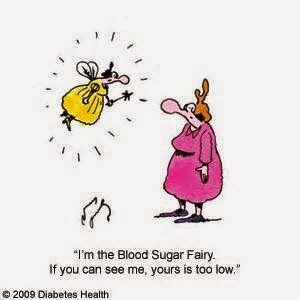I am most certainly against most "wonderful medical, weight-loss, etc general products lining the shelves in the market place today. And I believe many people are suckered into a lot of nonsense when they become avid followers of guys like Dr. Oz. Now before you explode let me explain what I mean. I know there are a lot of good products out there but rest assured the majority of what you see in the malls, etc is a lot of hype and expense for a little of nothing. Manufacturers are quick to make a buck off those who want to be slim, trim, beautiful, etc yet think they can eat whatever they want, never exercise, etc and reach that goal. That simply is not so. No matter how many products you buy, if you eat everything you can get your hands on - mostly fast foods, fats, sugars, etc, sit on the couch watching TV and playing video games in your spare time, and swallow a bunch of expensive pills, your health, weight, etc will not improve!
Now I have nothing against Dr. Oz. In fact, I often quote him on this blog but it is almost always an intelligent quote in context. People who hang on his every word, often miss what he is saying. He cannot usually change your life or go completely into an area during a 1 hour show that is cut way down because of commercials! He went to school for years and reads medical journals, goes to seminars, etc and you think he can tell you everything you need to know on a subject in a matter of minutes. Another problem is that humans, who are only half listening anyway, tend to hear what they want to hear and miss the rest. That is where the title of this blog post comes in!
Americans have gone crazy buying Garcinia Cambogia because Dr. Oz claimed it to be the holy grail. Really? Did they listen to what he really said? Doubtful! Well now, guess who else was listening. That's right, manufacturers! So they started packaging the stuff as fast and as cheaply as they could. And guess what! They knew people weren't listening beyond what they wanted to hear. Whoa!
Check the package of Garcinia Cambogia that is in your house right now. Does it contain calcium? If so you might as well throw it away, flush it down the toilet, etc. Dr. Oz warned to make sure your product contains NO calcium. Why? It blocks the absorption of the HCA or hydroxycitric acid, the active ingredient in Garcinia Cambogia that makes it work! Studies have shown that adding calcium to a garcinia cambogia product makes the product unusable by the body.
I continually suggest reading labels on anything that goes into your mouth. But that doesn't do a lot of good if you don't know what you are looking for!


I went to the internet and just randomly pulled up a couple of garcinia cambogia product labels. And there it is, calcium on both labels. Dr. Oz also said to buy product with 75% HCA. Note these labels both say 60% HCA. The manufacturers aren't trying to fool anyone. They know they don't have to because humans don't pay attention to the details of this type of product. They are playing you a little on the first label by saying the serving size is 1 Veggie Capsule. That is a mind game with you because we are living in a society right now that is big on promoting vegetables so they know that will get your attention and perhaps have you choose their product over another. Also, when you read the two labels you will see the ingredients list is the same for both. But notice the dosage. One says the serving size is 1 "Veggie" Capsule and the other says it is 2 Capsules.

.jpg)
.jpg)
.jpg)






